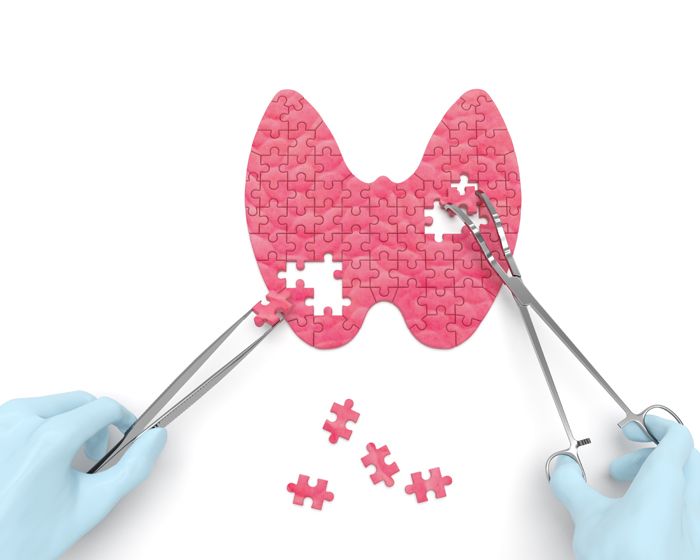Thyroid Gland Removal Surgery in Sadashiv Peth, Pune
The thyroid gland is a very important gland present in our neck. It produces thyroid hormone. Sometimes, this gland may develop problems like increased production of thyroid hormone, formation of growths and cysts, and swelling and enlargement. In such cases, it might need to be removed with thyroid surgery.
What is thyroid gland removal or thyroid surgery?
Thyroid gland surgery is the procedure where the thyroid gland is removed, either partially or completely. The thyroid gland is a small butterfly-shaped gland that is located in the neck. It produces the thyroid hormone which is responsible for regulating the body’s metabolism. In rare conditions, one may develop structural and functional problems on the gland. In such situations, thyroid surgery is done to remove the gland.

What are the reasons for thyroid surgery?
The gland might have structural or functional abnormalities. Some of the abnormalities are:
- Presence of nodules. The nodules can be benign (non-cancerous) or precancerous or even cancerous.
- Grave’s disease: This could be due to an autoimmune condition where the body’s immune system attacks the gland, causing inflammation.
- Goiter: increase in the size of the gland due to other conditions like thyroiditis, and iodine deficiency.
- Hyperactive thyroid gland: hyperthyroidism or overactive thyroid can result in too much hormone, in which case, it needs to be removed.
Not all conditions and enlargements of the gland require thyroid removal. Consult with your doctor to know if you need this surgery.
What are the types of thyroid surgery?
There are many different types of thyroid surgery. They are mainly classified based on how much of the gland is removed. They are:
- Lobectomy: the gland has two lobes. Sometimes, the nodule or inflammation is only on one side. In such cases, only the affected side is removed. This is called a lobectomy.
- Subtotal thyroidectomy: in this type of surgery, the entire gland except for a small portion is removed. This small portion is left so that some portion of the thyroid function can be retained.
- Total thyroidectomy: in this procedure, the entire gland is removed completely. This is recommended when the gland is completely affected, or a cancerous nodule is suspected.
Depending on the condition, the doctor will analyze the situation and recommend an appropriate treatment.
How is thyroid surgery done?
The surgical procedure takes place under anesthesia. The patient is required to follow some instructions before the surgery.
- Before surgery, you will be instructed to not do anything from the previous night. This includes fluids. The doctor may also give a few medications to ease the discomfort.
- At the time of surgery, you will be placed under general anesthesia so you will be asleep for the entire procedure.
- The surgeon would place an incision and remove the gland after tying up all the associated vessels. The entire procedure can take up to 2 hours or more.
- After the surgery, your vitals will be tested, and you will be under observation for 2 days.
Are there any risks after thyroid removal?
Like all surgical procedures, thyroidectomy also has its fair share of risks involved. Some of the common ones are:
- Damage to the nerves connected to the vocal cord can change the quality of sound.
- Damage to the parathyroid glands which are 4 small glands present behind the thyroid gland. They are responsible for maintaining the calcium levels in our bodies. This leads to hypoparathyroidism.
- Bleeding during surgery
- Infection
- Bleeding can also cause airway obstruction.
Although these risks sound serious, the surgery is important and even life-saving in some conditions. Talk to your doctor to know more about the surgery and its risks.
Request an appointment at Apollo Spectra Hospitals, Pune
Call 1860-500-2244 to book an appointment
Conclusion:
Thyroid removal is a procedure where a part of the entire thyroid gland is removed due to certain conditions. The surgical process is performed only if required and the patient is placed under observation until discharge. Despite the risk factors, this procedure is very important in many structural and functional abnormalities of the thyroid.
After the surgery, you will be observed for 2 days. After this, you can carry on with normal activities. There might be soreness of the throat for which painkillers will be prescribed. You may develop hypothyroidism as the gland is removed. The doctor will prescribe hormone replacement therapy for this.
With maintenance and regular medication in the case of hypothyroidism, you can lead a healthy and normal life.
After surgery, it is recommended that you eat soft foods or a liquid diet for a few days. Once the soreness reduces, you can eat other solid food as well.
Symptoms
Our Top Specialities
NOTICE BOARD
CONTACT US
CONTACT US
 Book Appointment
Book Appointment


.svg)
.svg)
.svg)
.svg)








